First issue of an annual magazine of photographic stories, edited and designed by Julie Peeters. Twelve contributors present new or previously unpublished work. BILL prioritizes visual reading without distraction, the images that appear in the magazine are printed without any accompanying text. Contributors to the first issue are: Jochen Lempert, Ketuta Alexi-Meskhishvili, Katja Mater, Elena Narbutaite, Rosalind Nashashibi & Vivian Suter, Arthur Ou, Scott Ponik, Adam Putnam, Johannes Schwartz, Algirdas Šeškus, Linda van Deursen, and Stand Up Comedy.
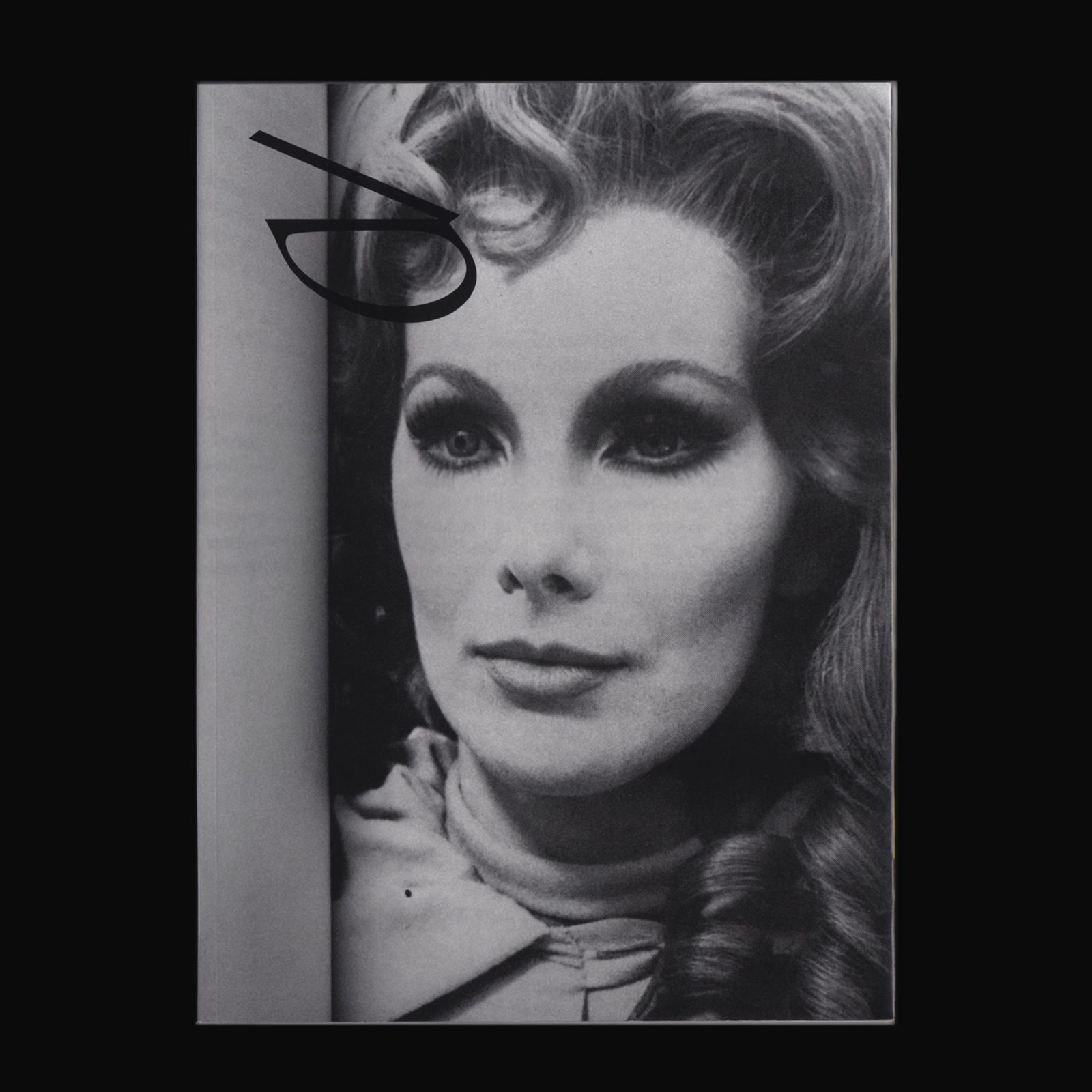
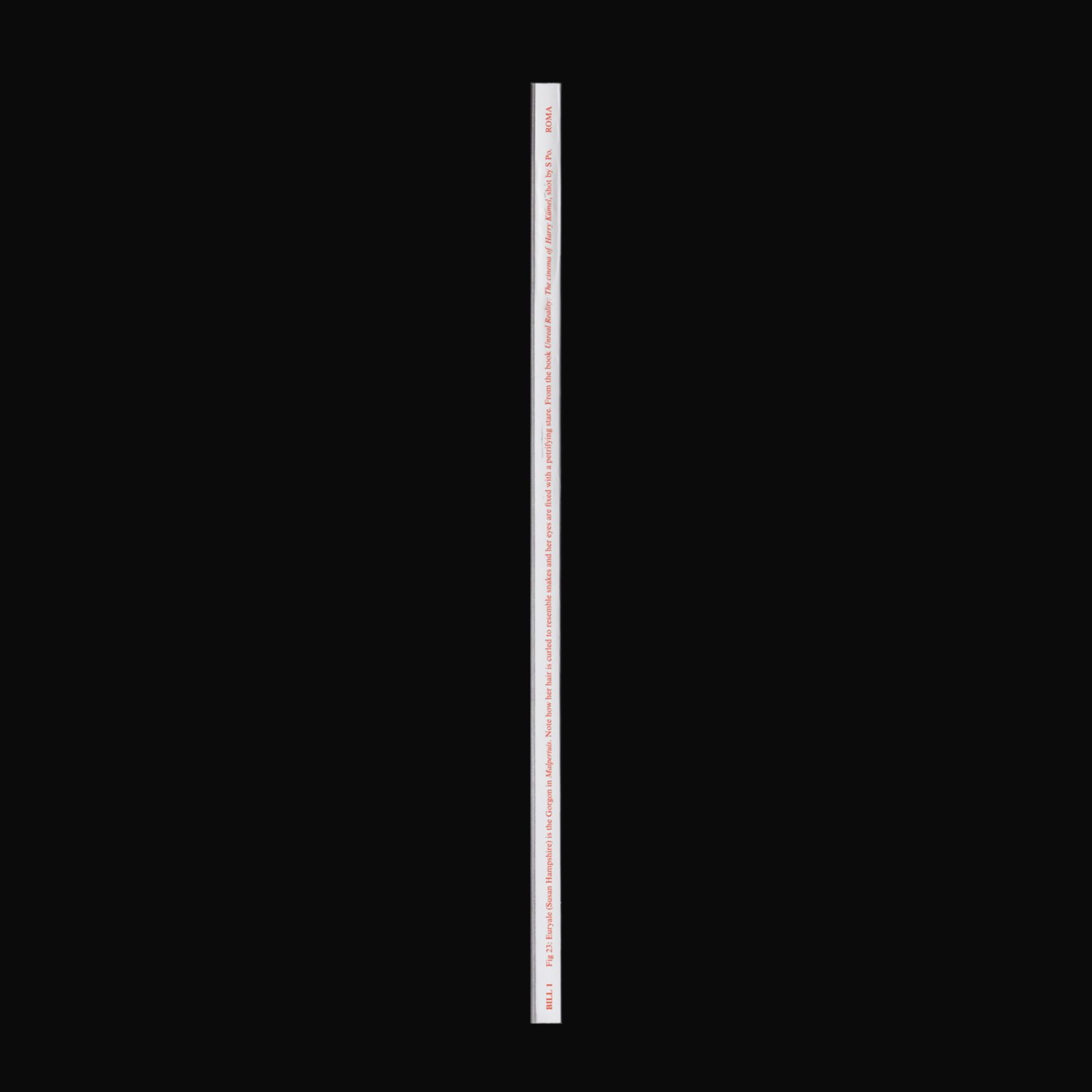
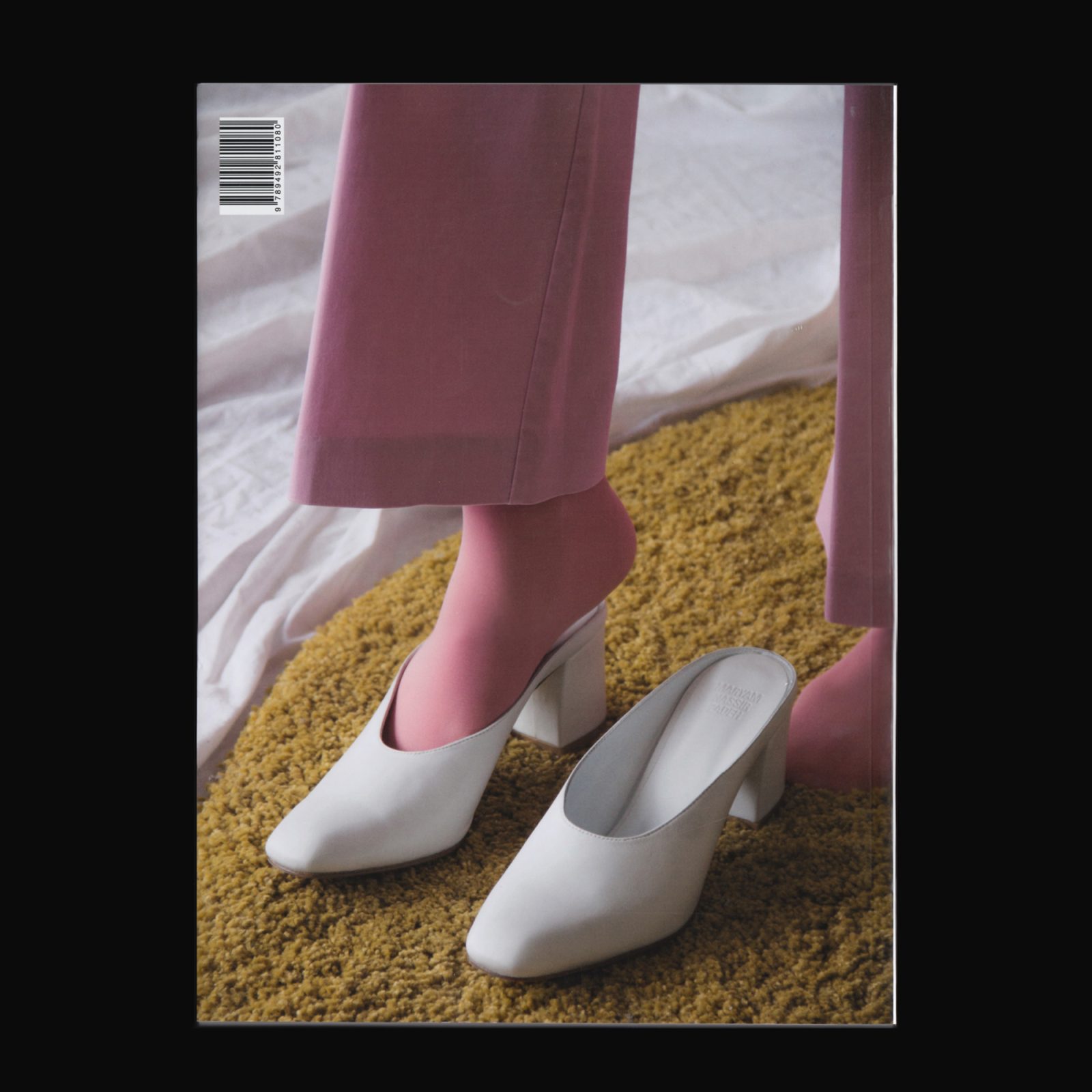
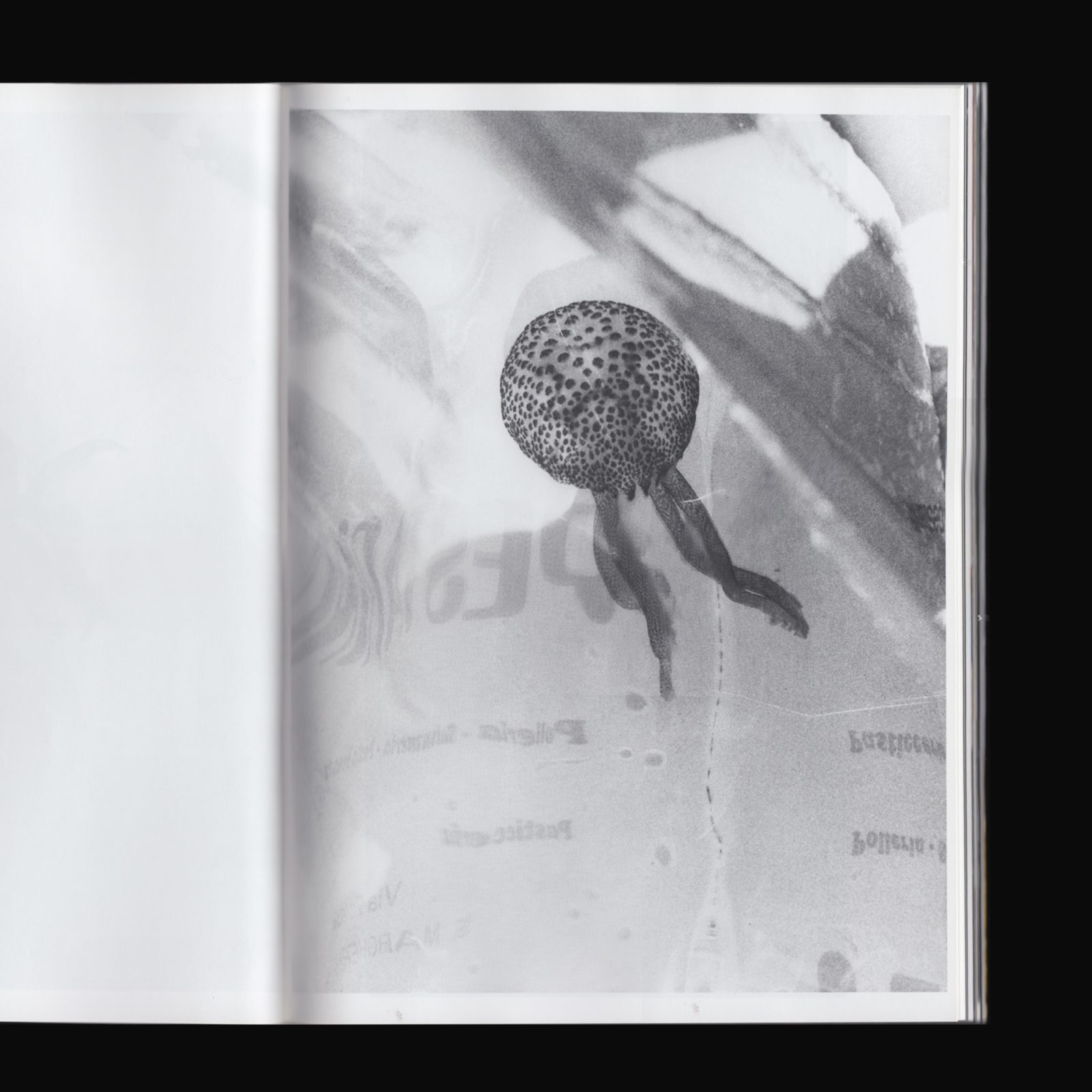
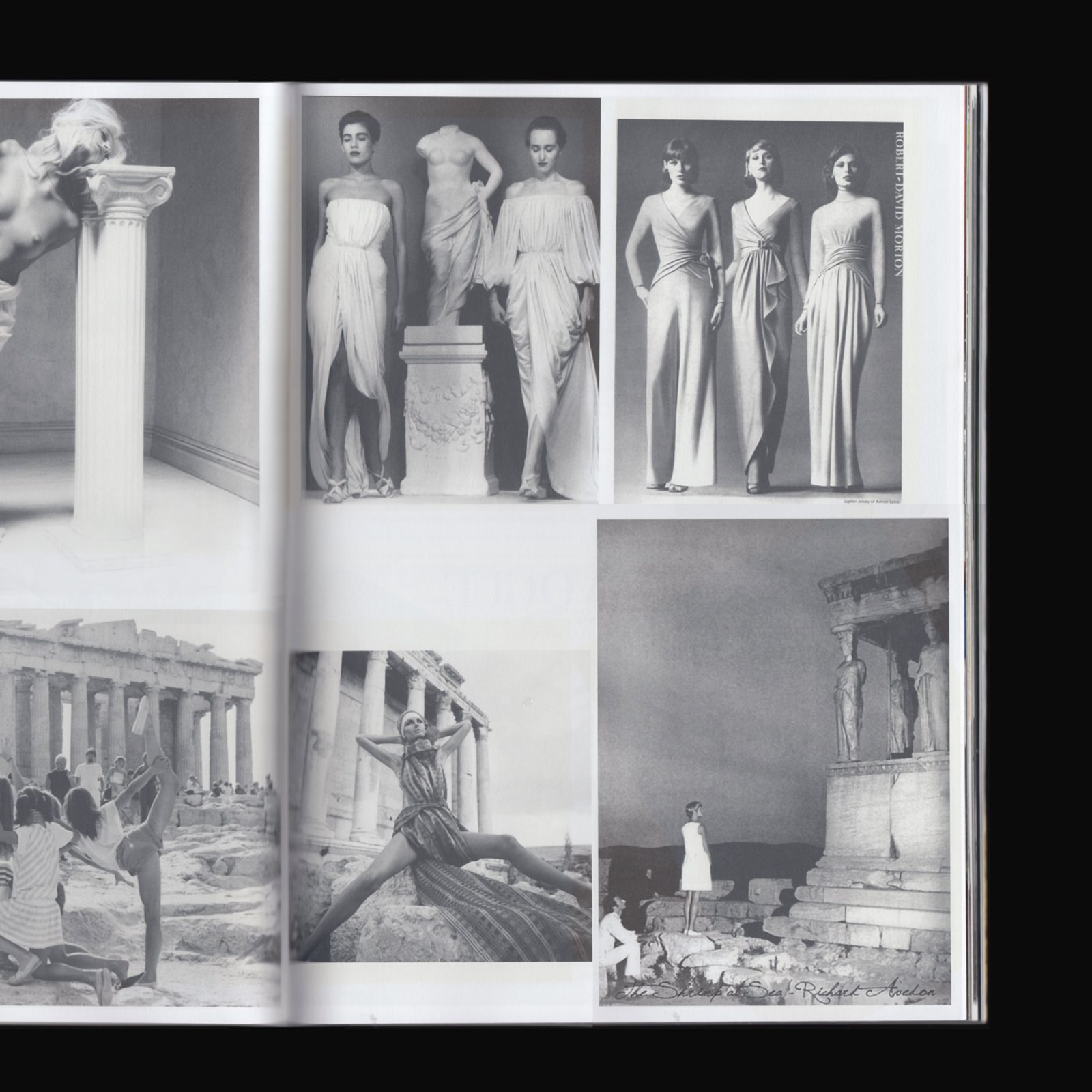
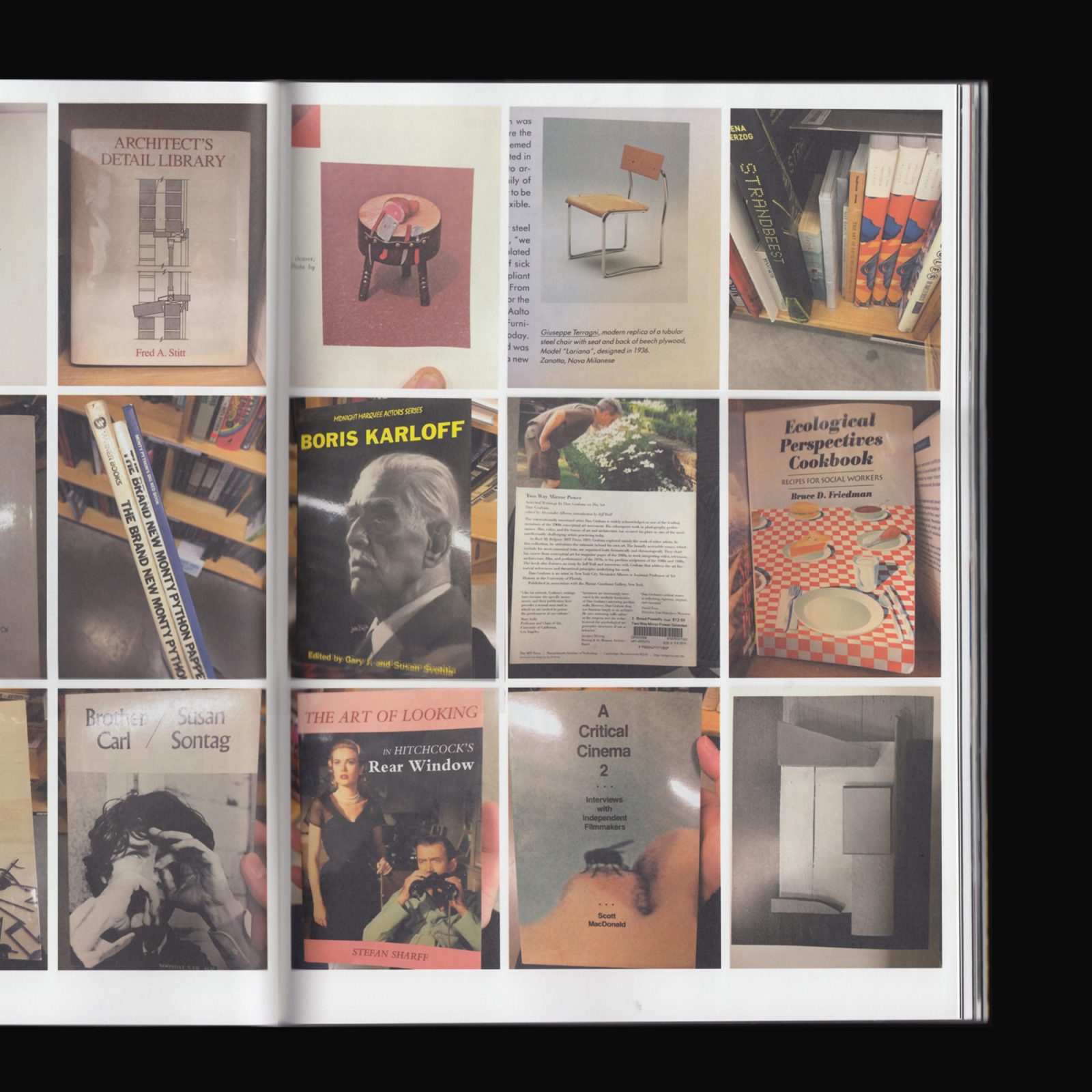
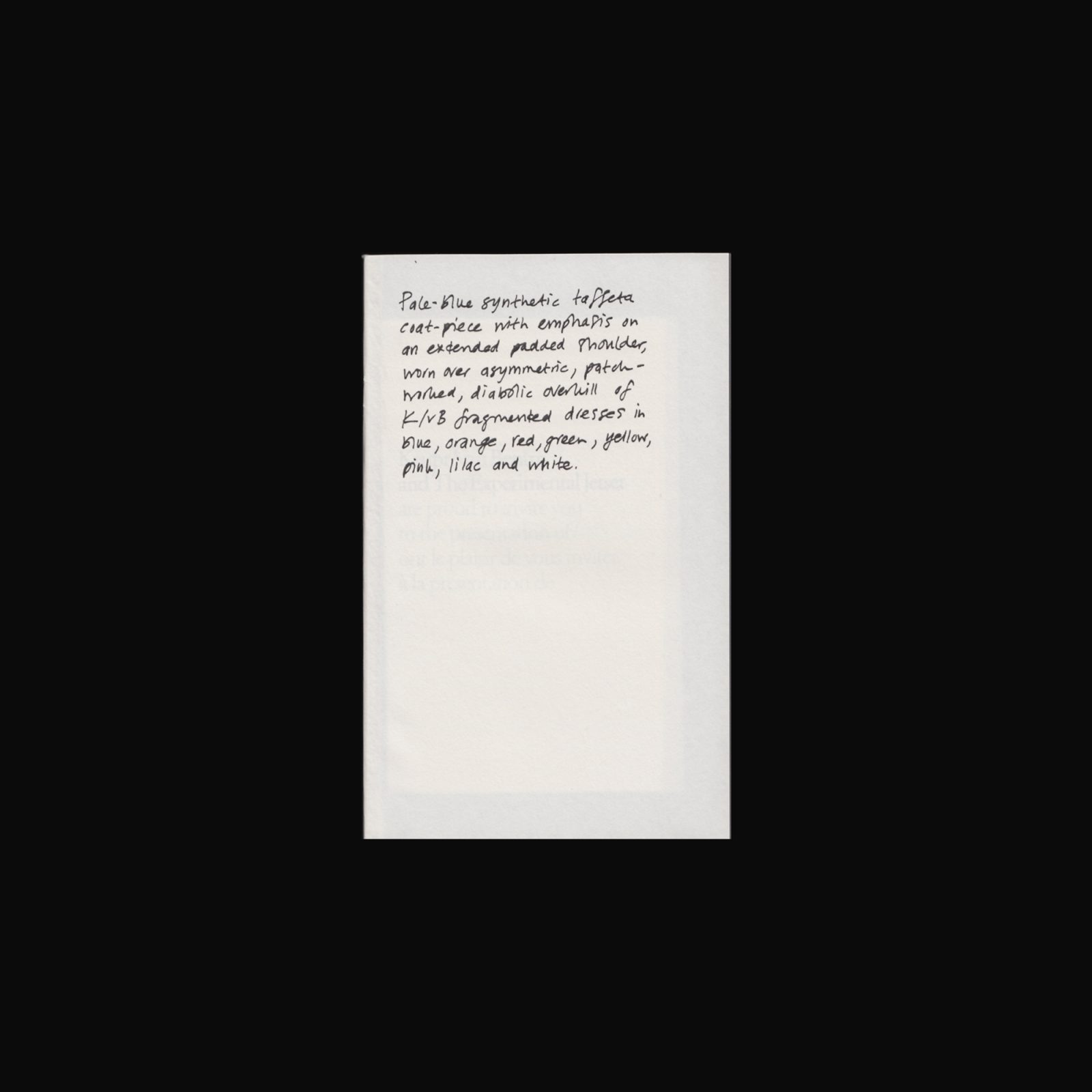

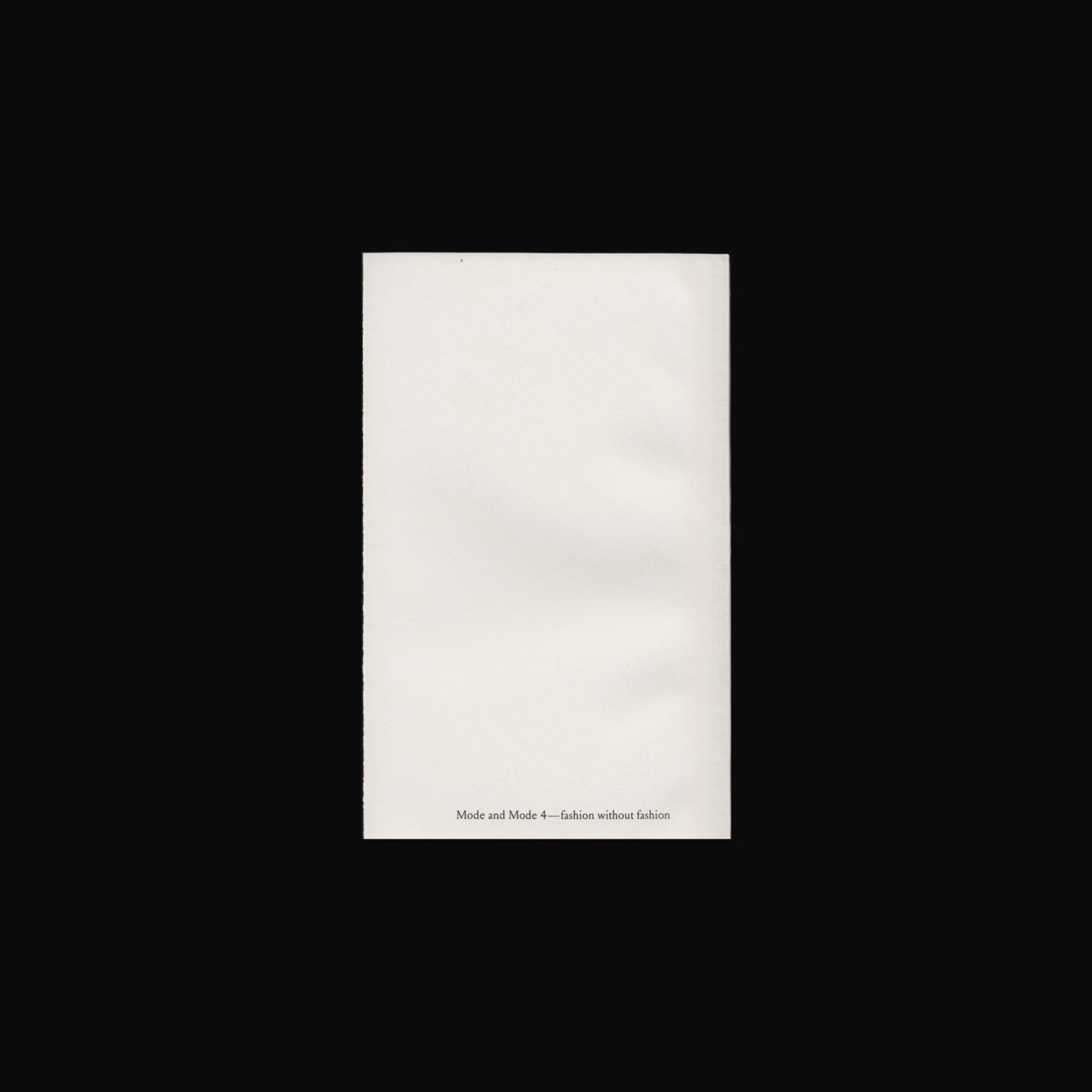
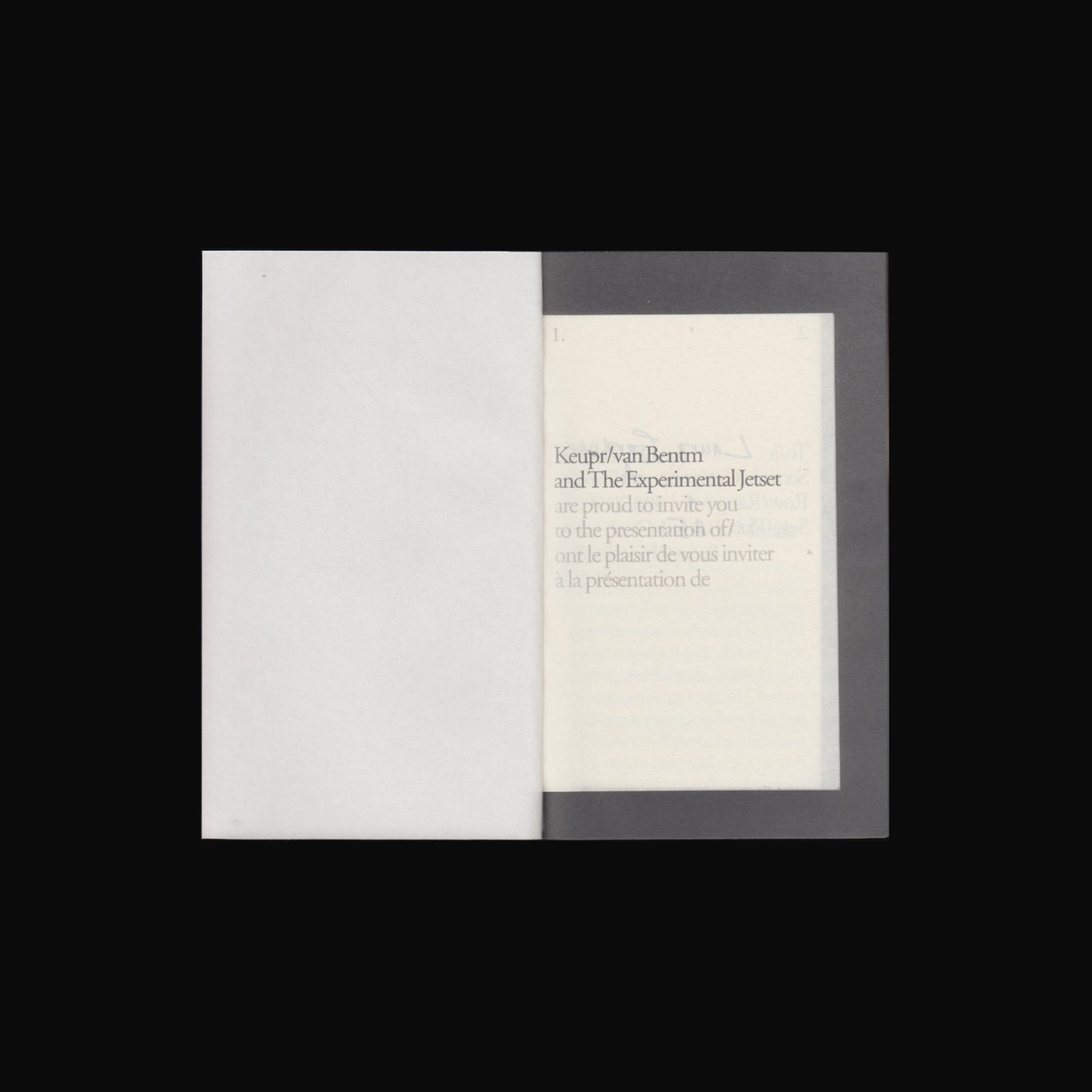
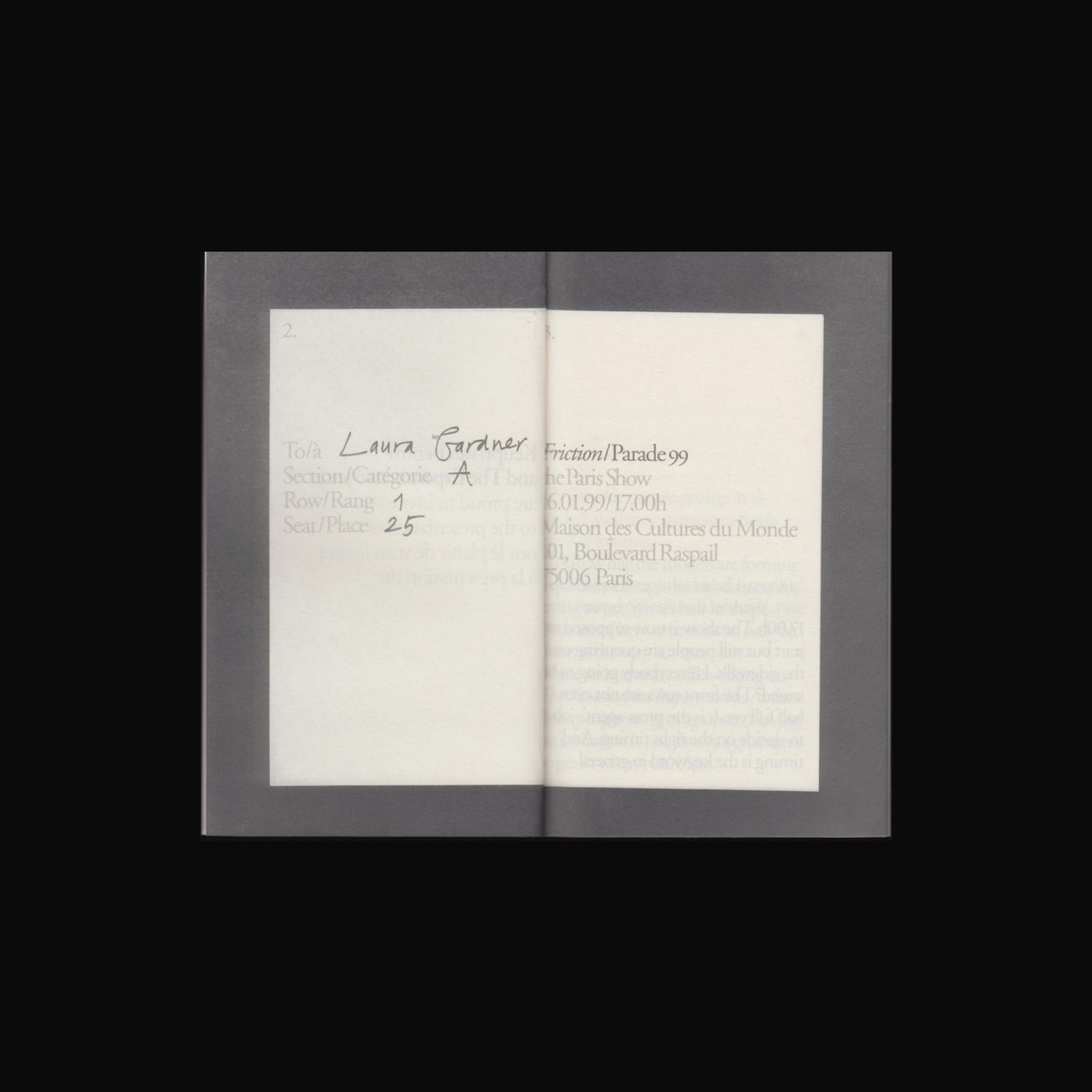
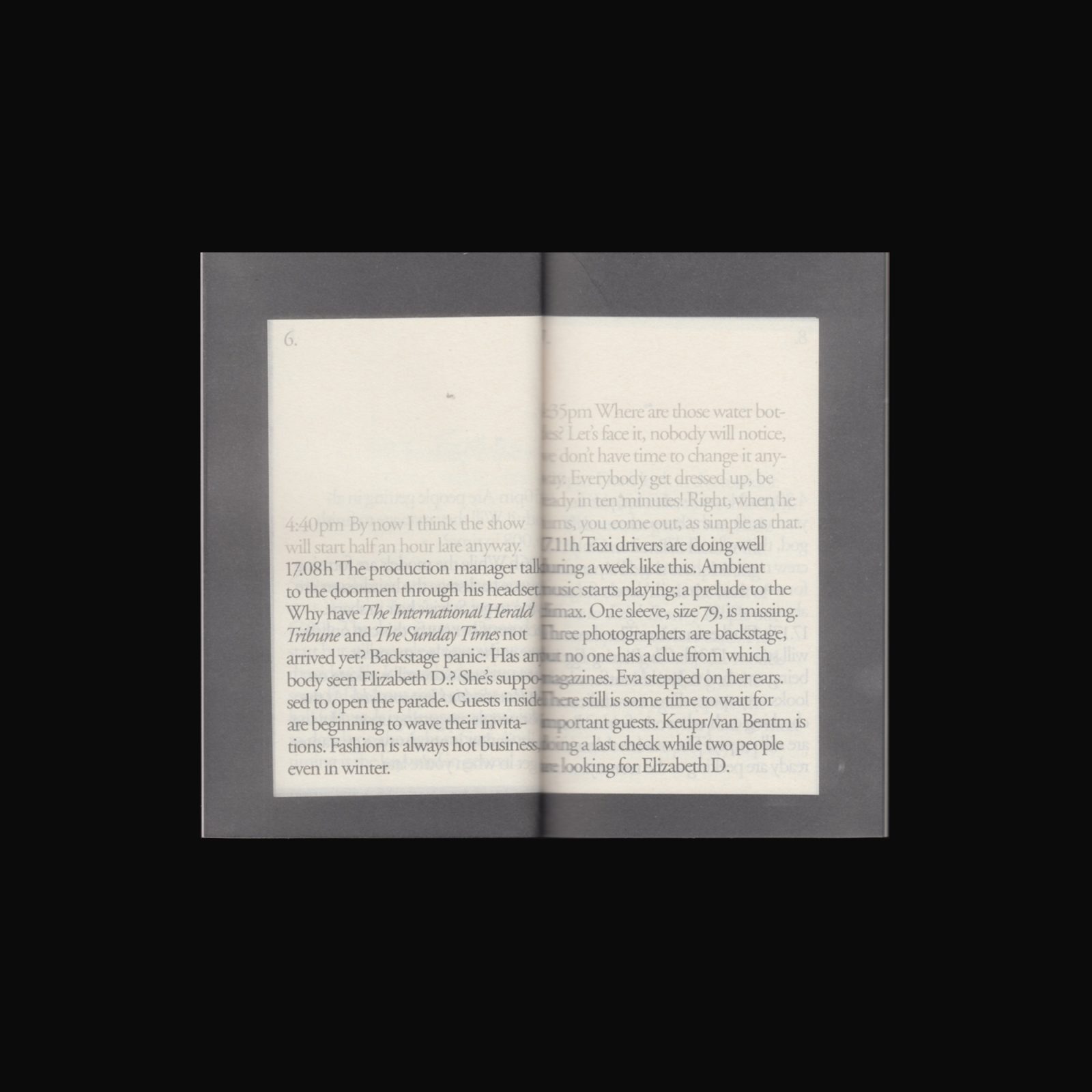
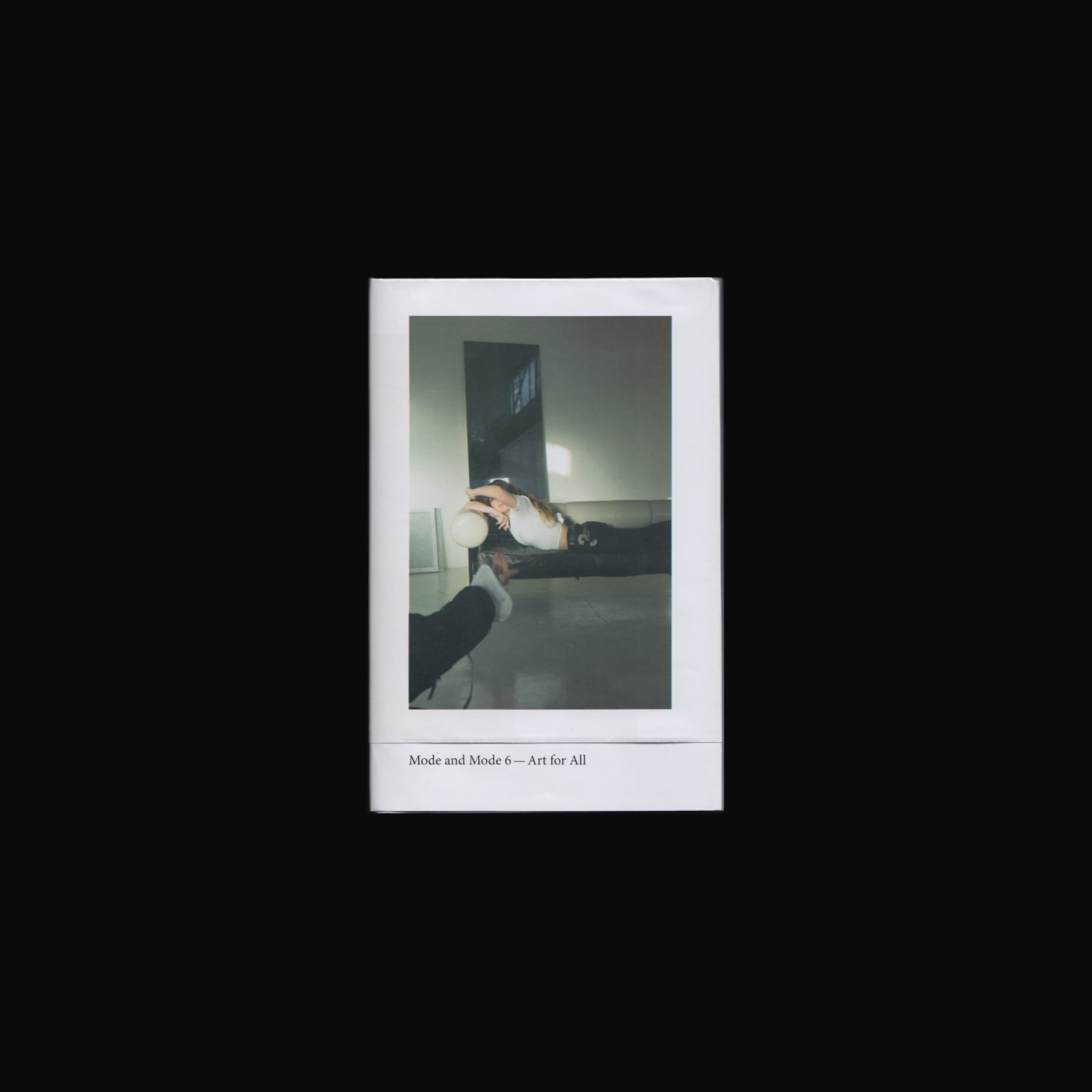
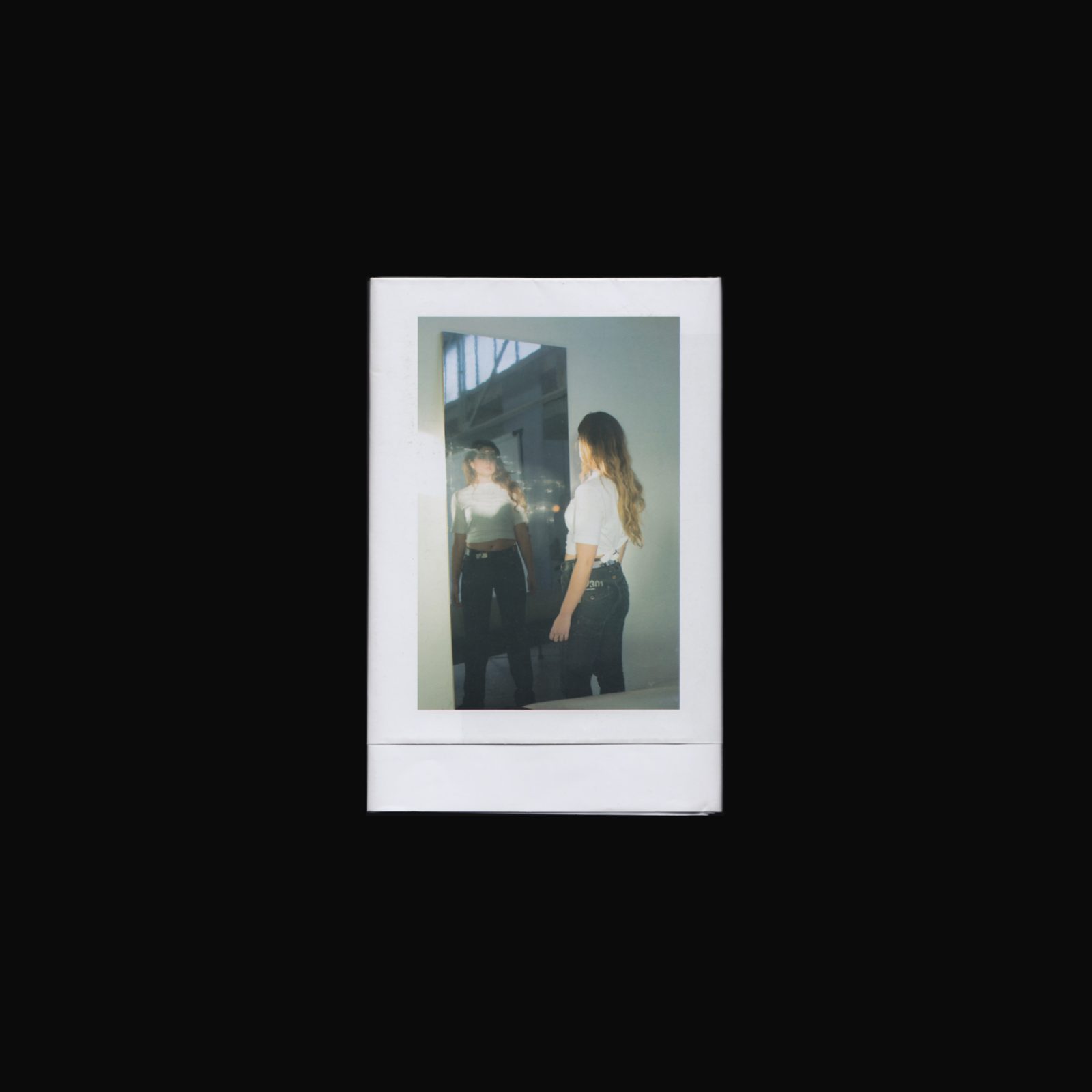
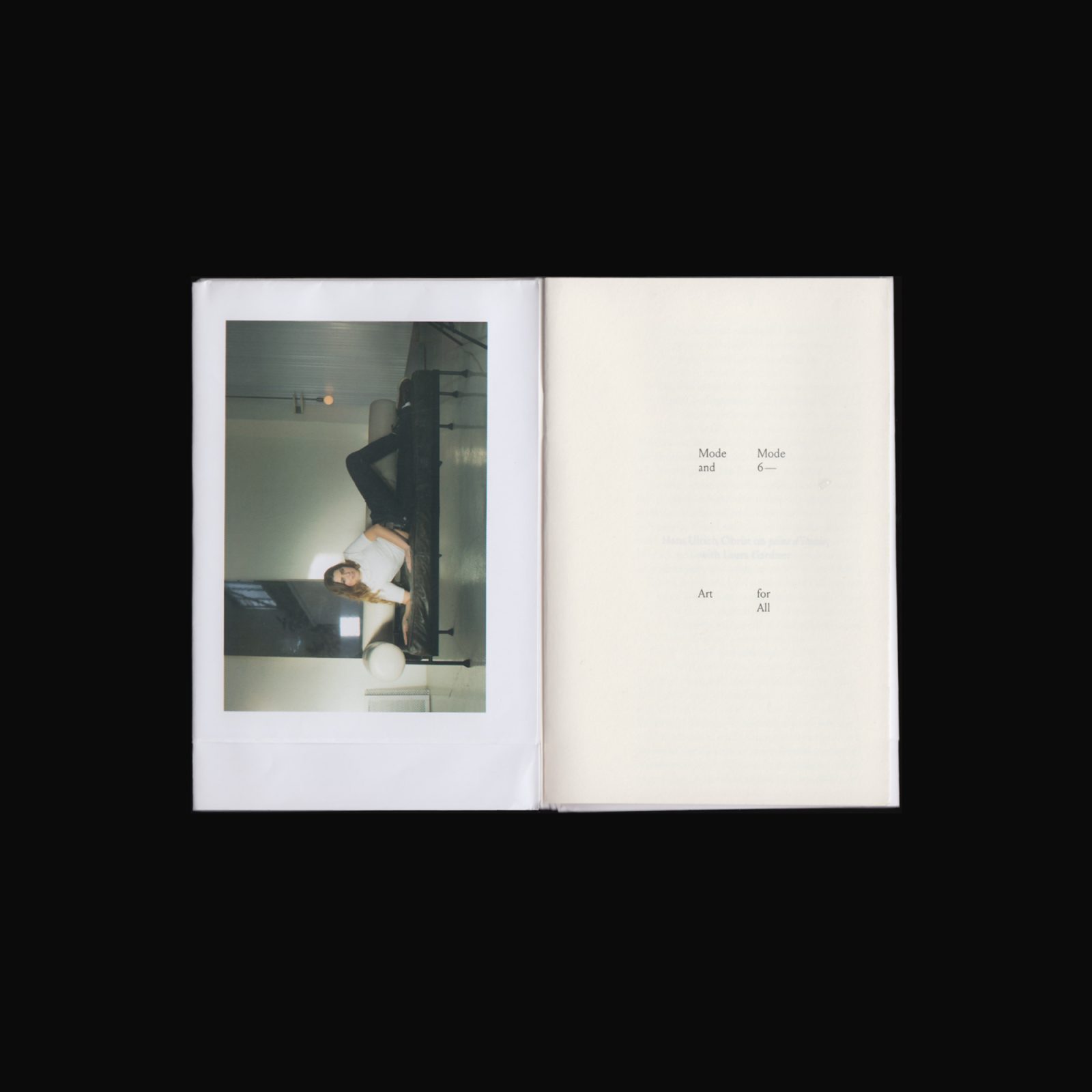
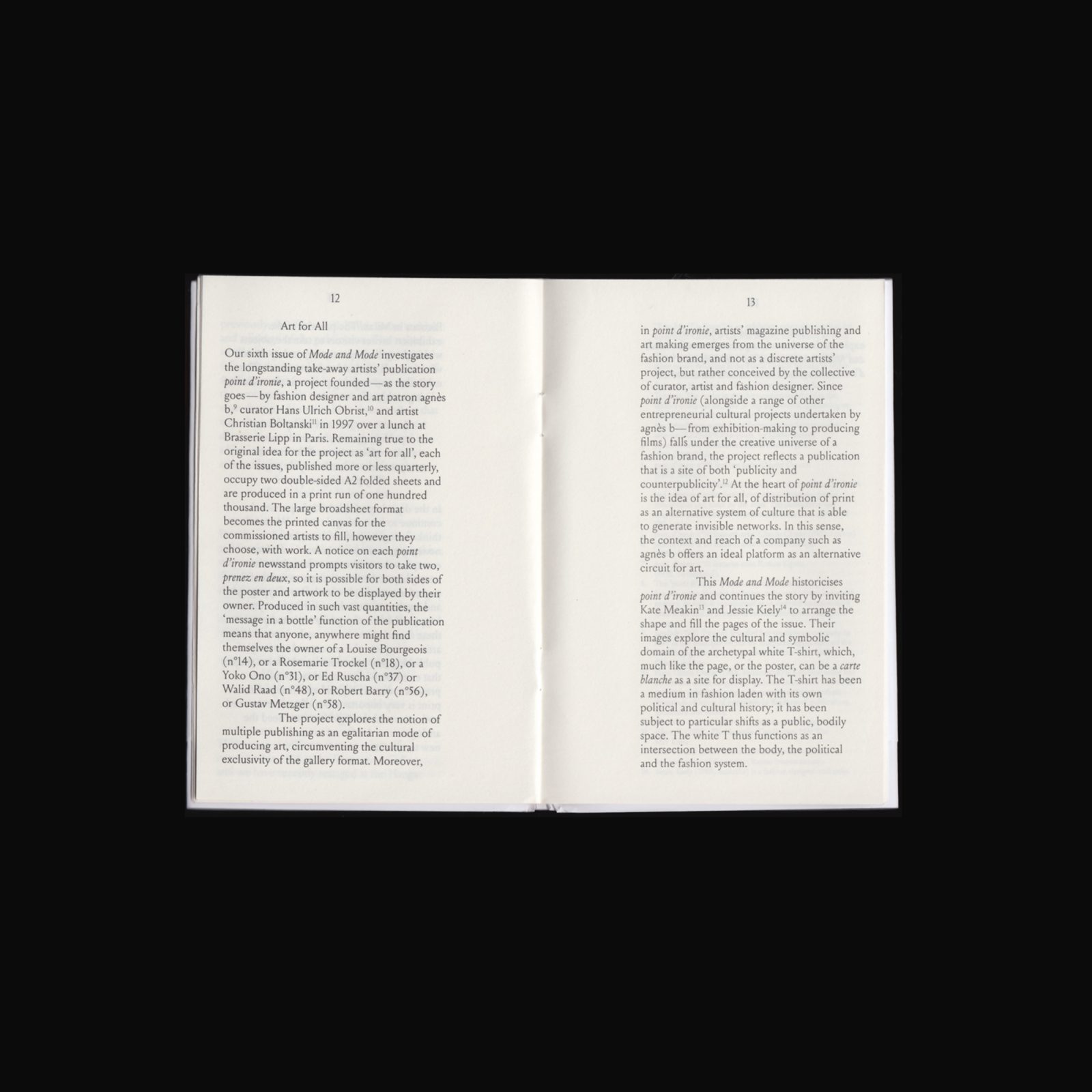
Mode and Mode is a periodical that addresses printed matter in fashion practice. Each issue explores experimental publishing in fashion with an interview around a print-based project at the margins—one that has critical effects to fashion as a discourse—with the aim to level alternative, lesser-known fashion practices with contemporary fashion discourse.
Mode and Mode six ‘Art for All’ featuring an interview with Hans Ulrich Obrist on the publication point d’ironie co-founded with artist Christian Boltanski and agnès b., and a foldout poster created by Kate Meakin and Jessie Kiely.
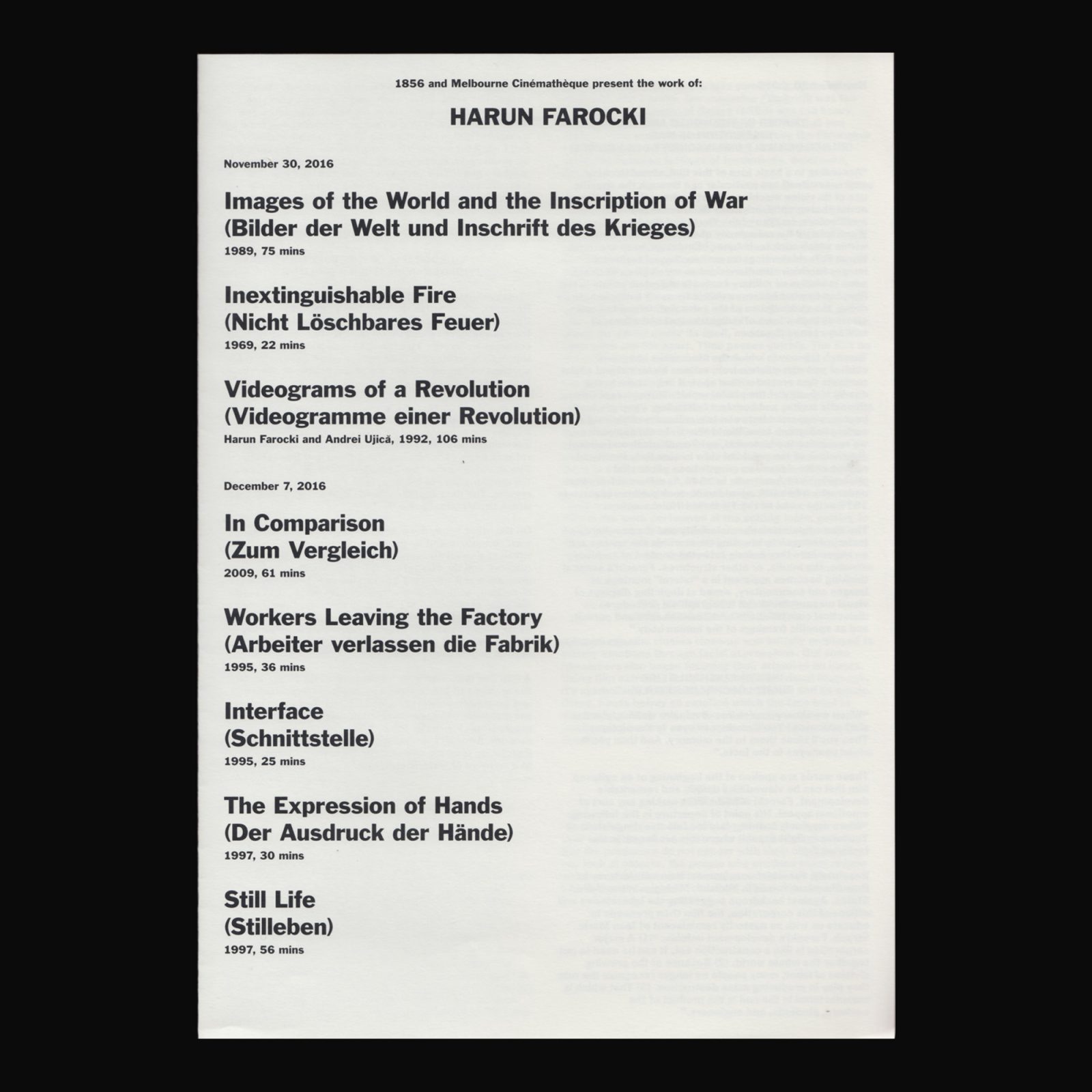
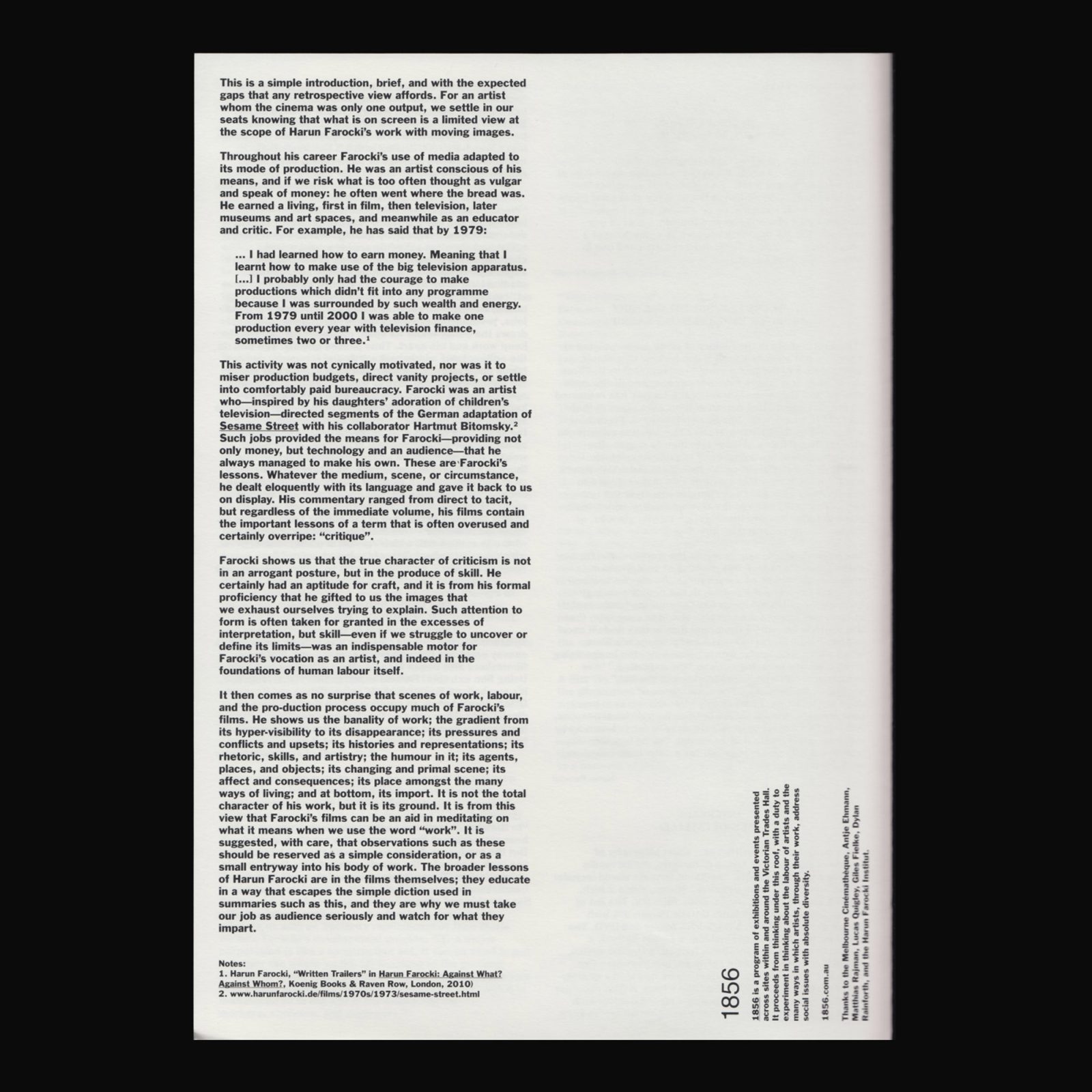
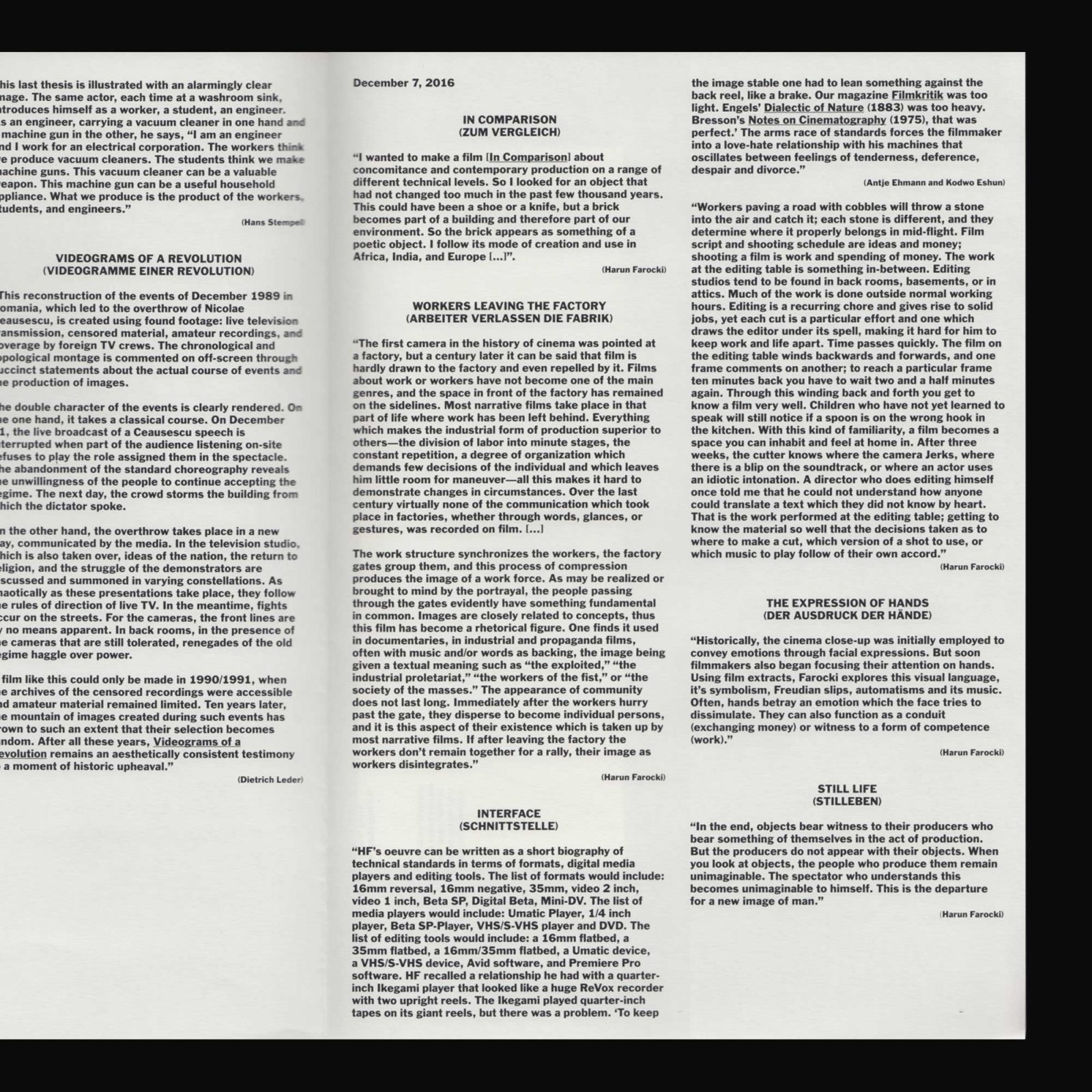
Catalogue for a season of film screenings at Melbourne Cinematheque focusing on the work of Harun Farocki, presented by 1856.
Designed by Lucas Quigley.
You can find more on the program here.
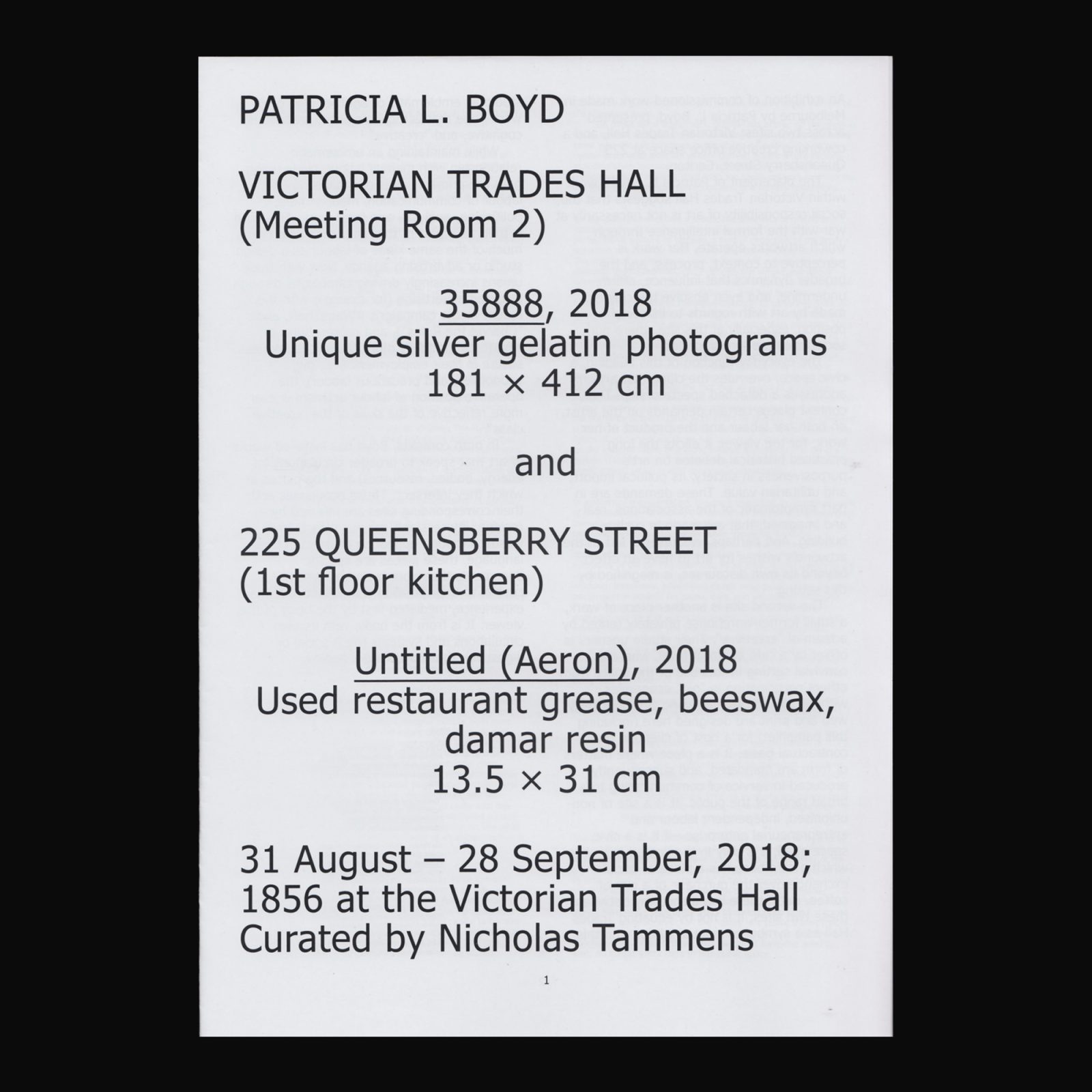
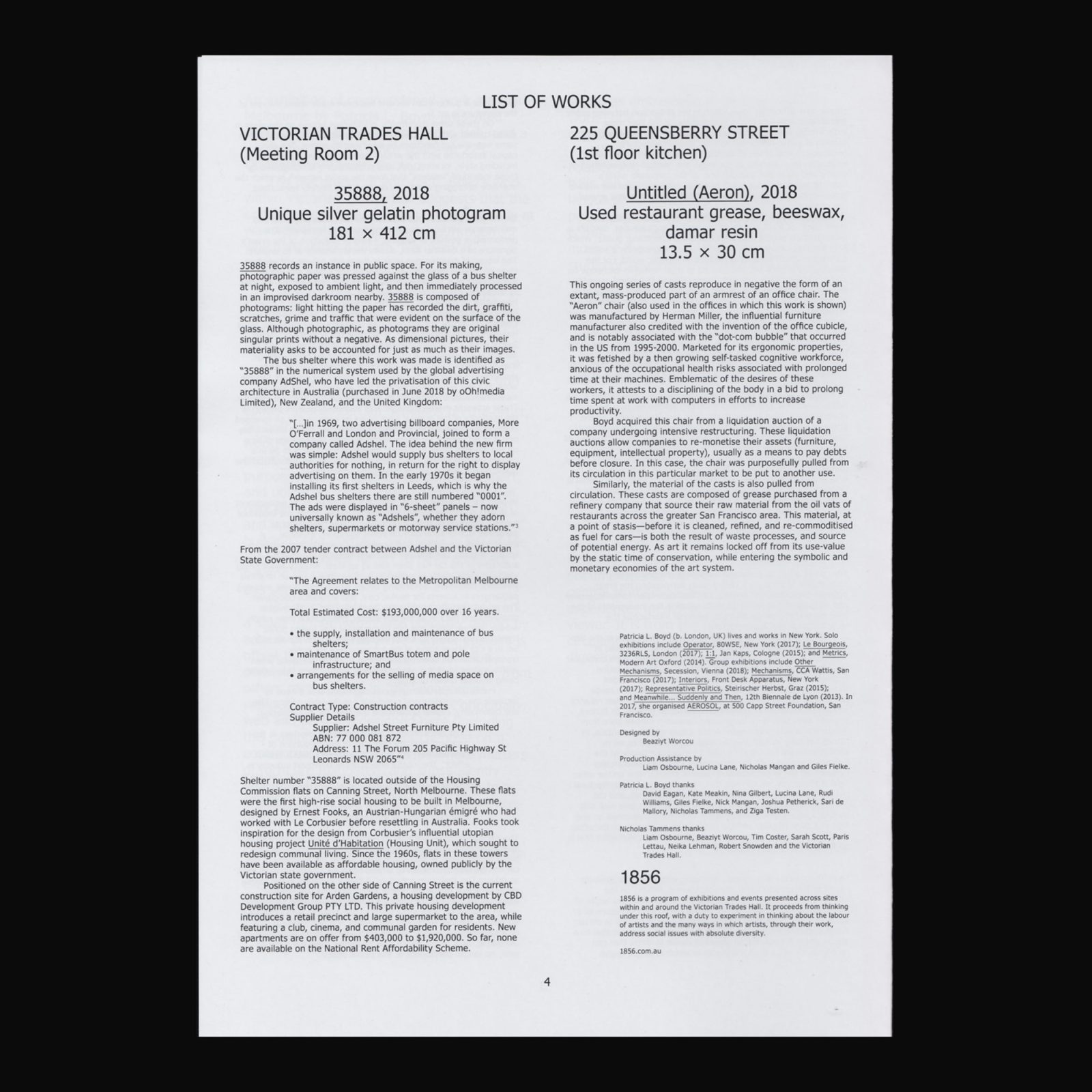
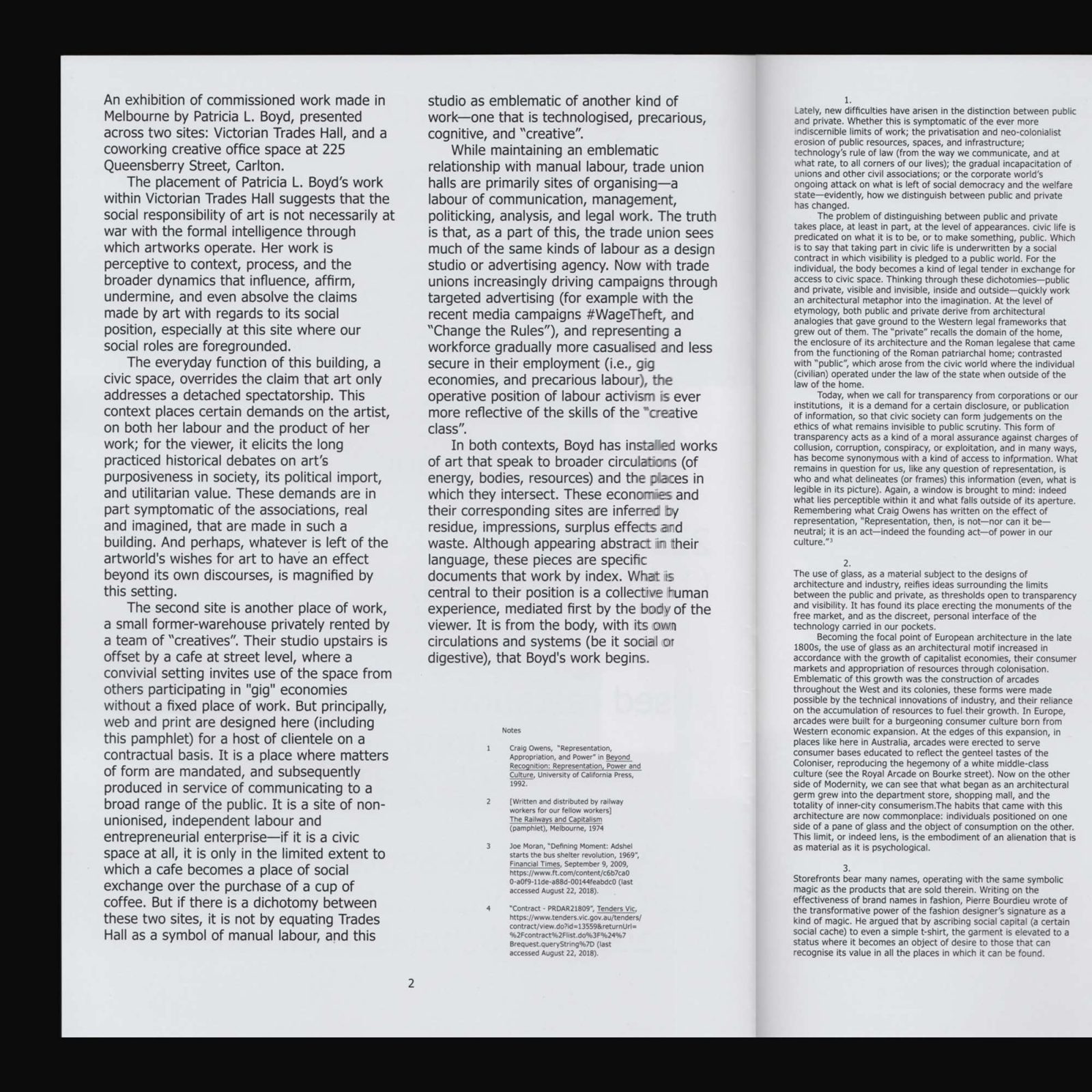
Catalogue for an exhibition of new work made by Patricia L. Boyd in Melbourne, presented across two locations: at Victorian Trades Hall and a coworking creative office space 225 Queensberry St, Carlton.
Designed by Beaziyt Worcou.
You can find more on the exhibition here.
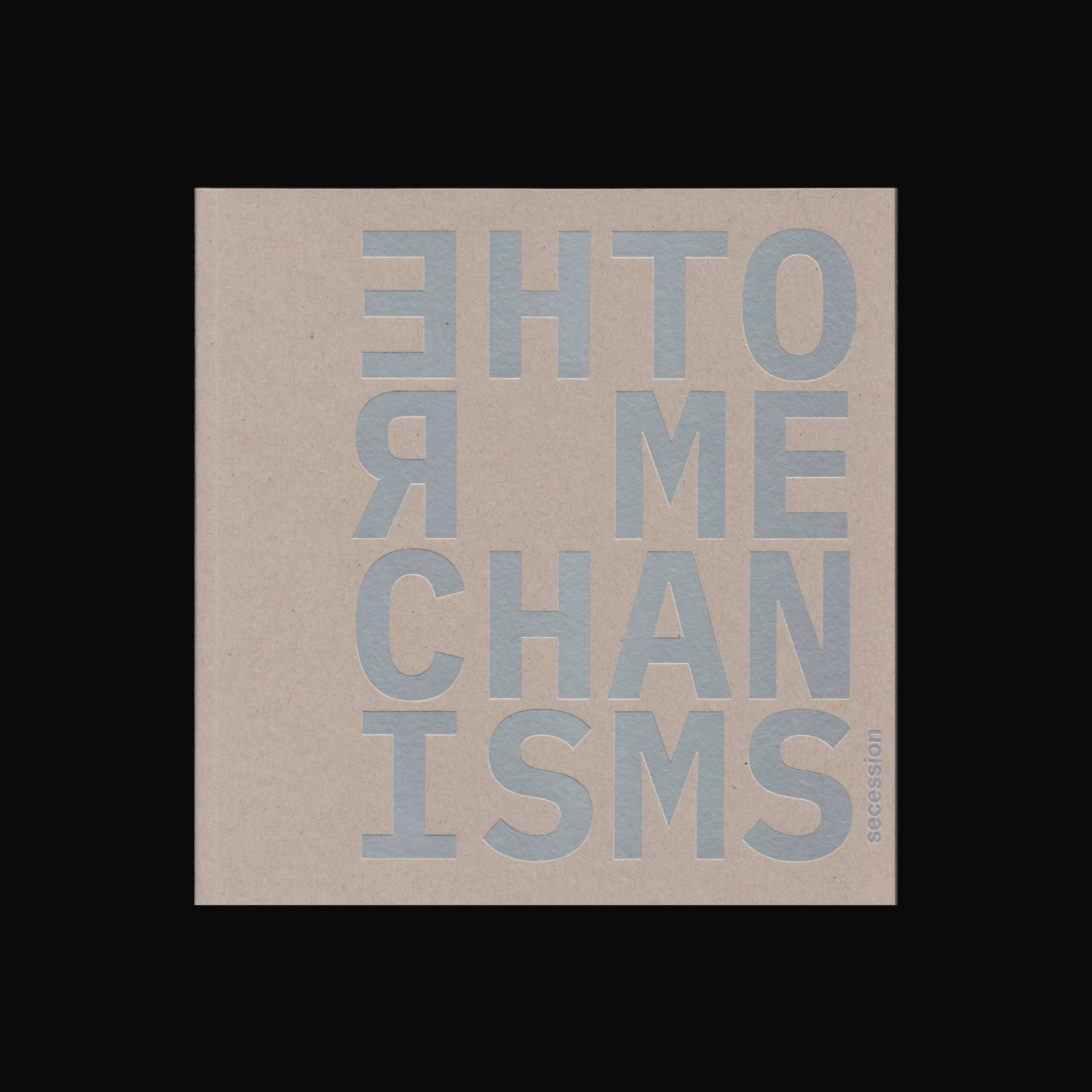
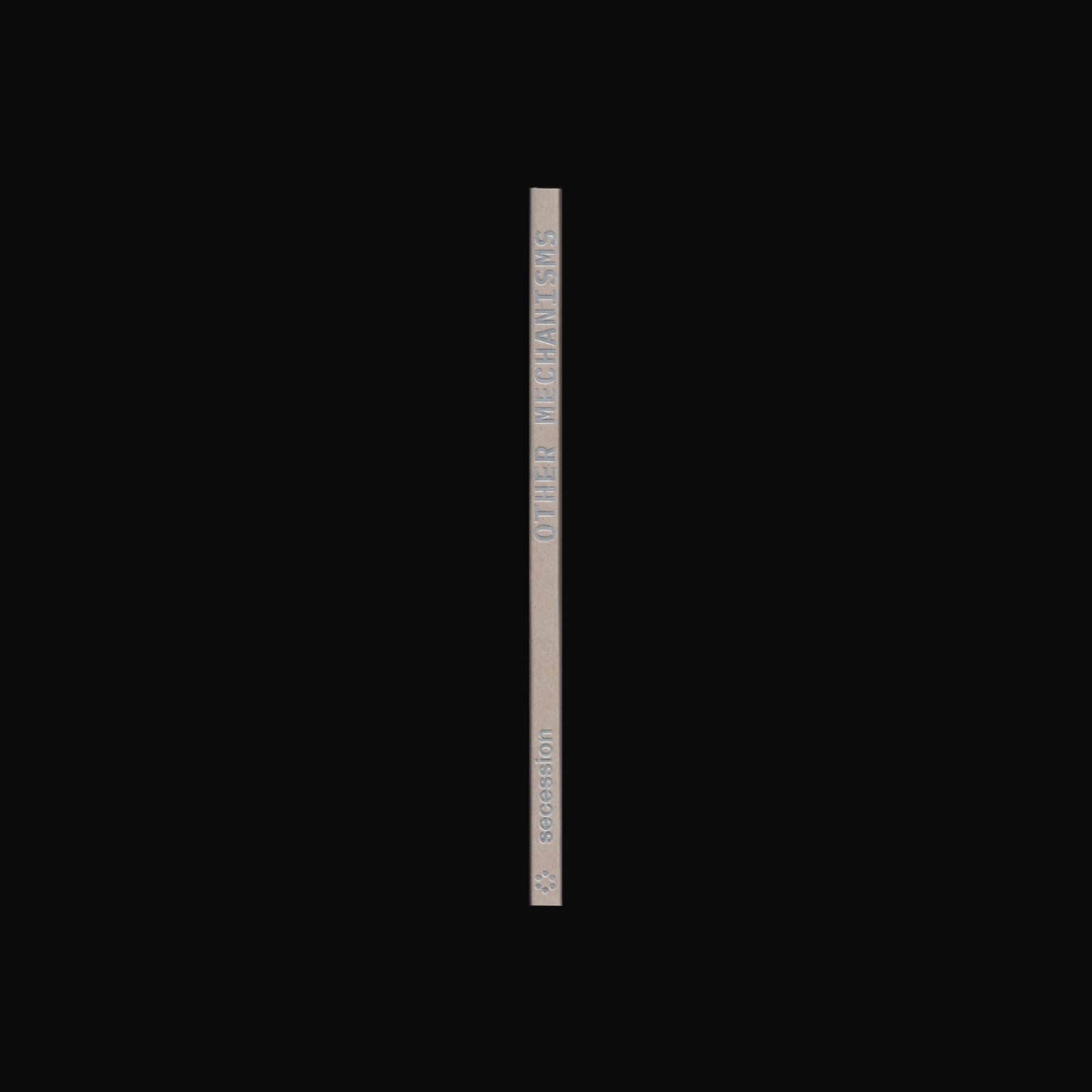
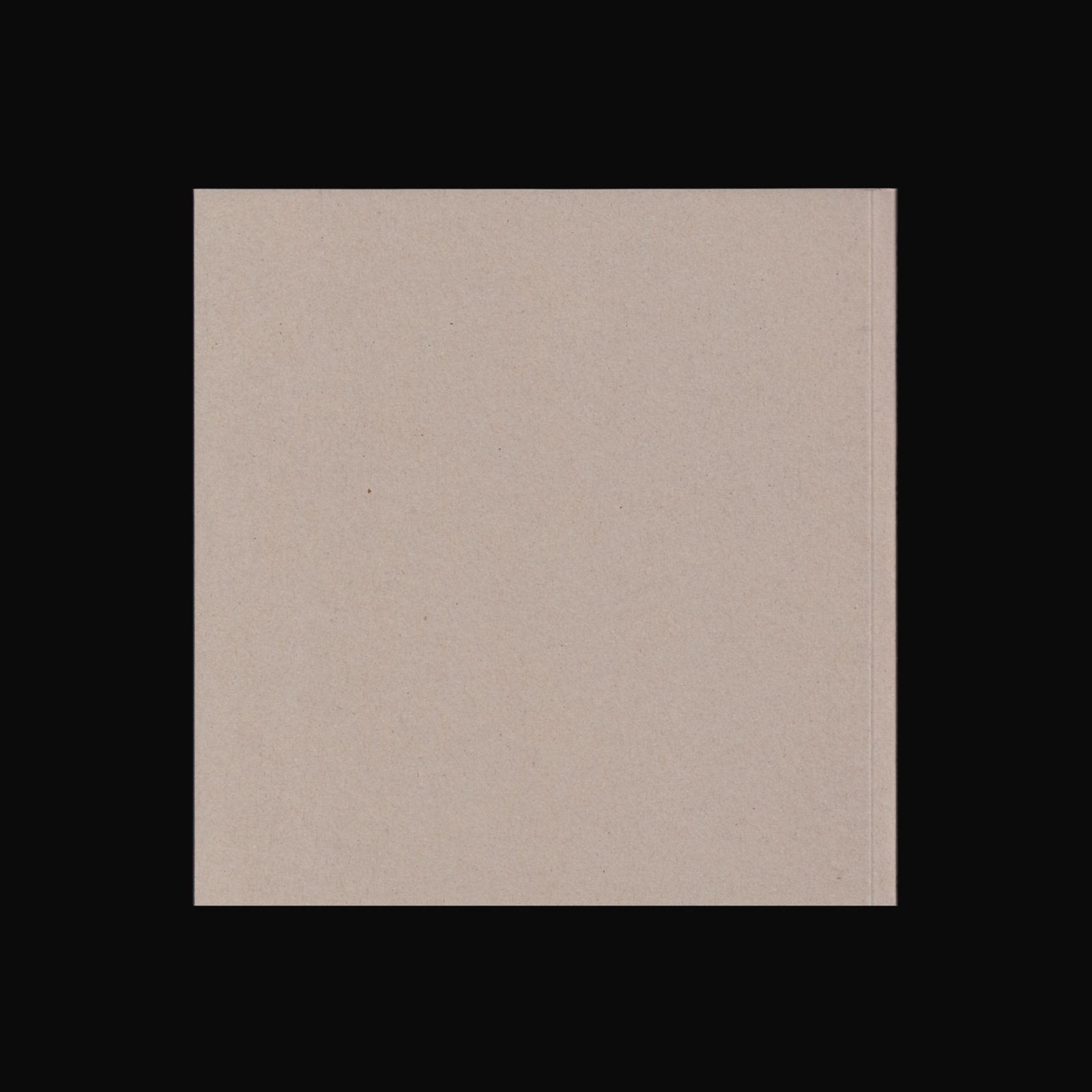
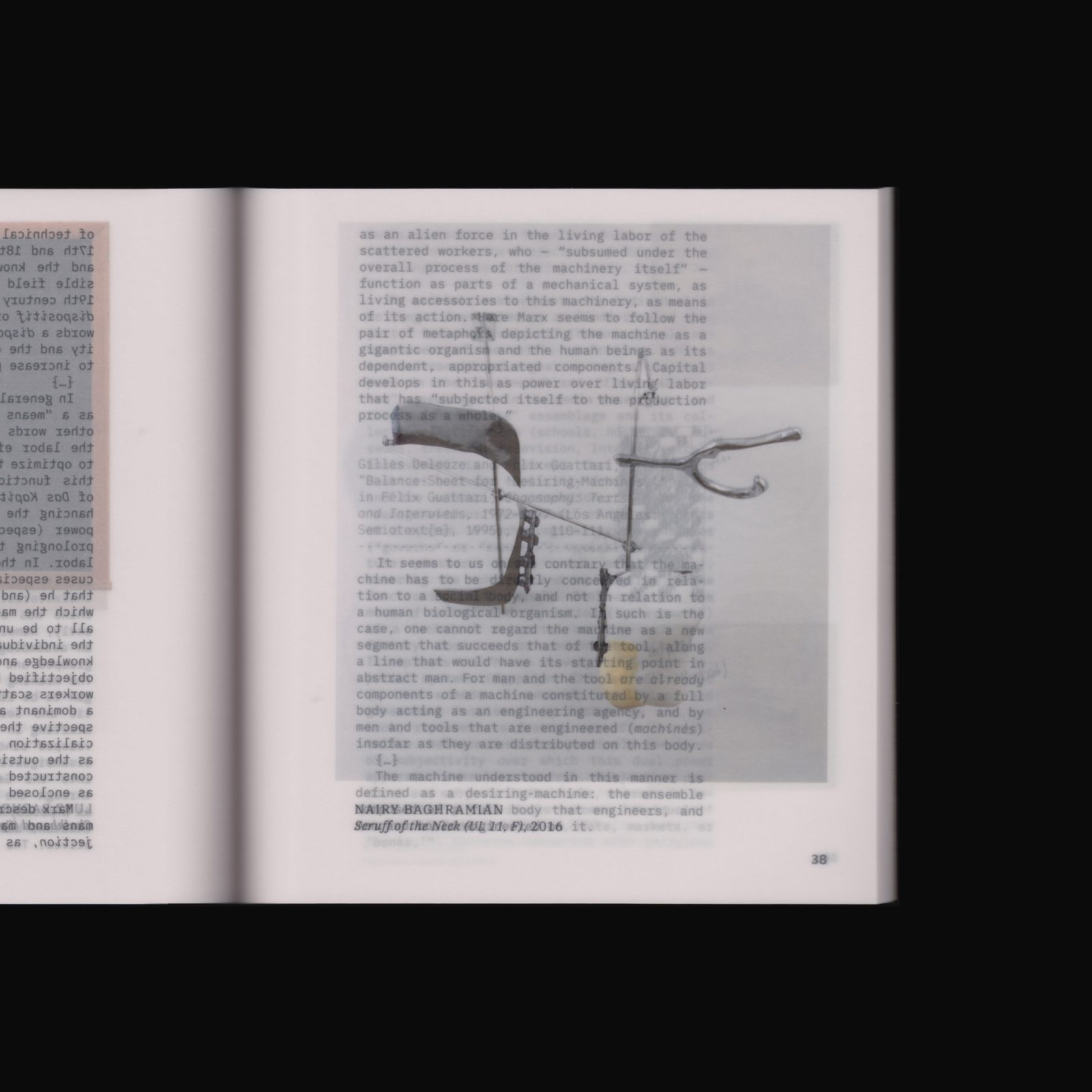
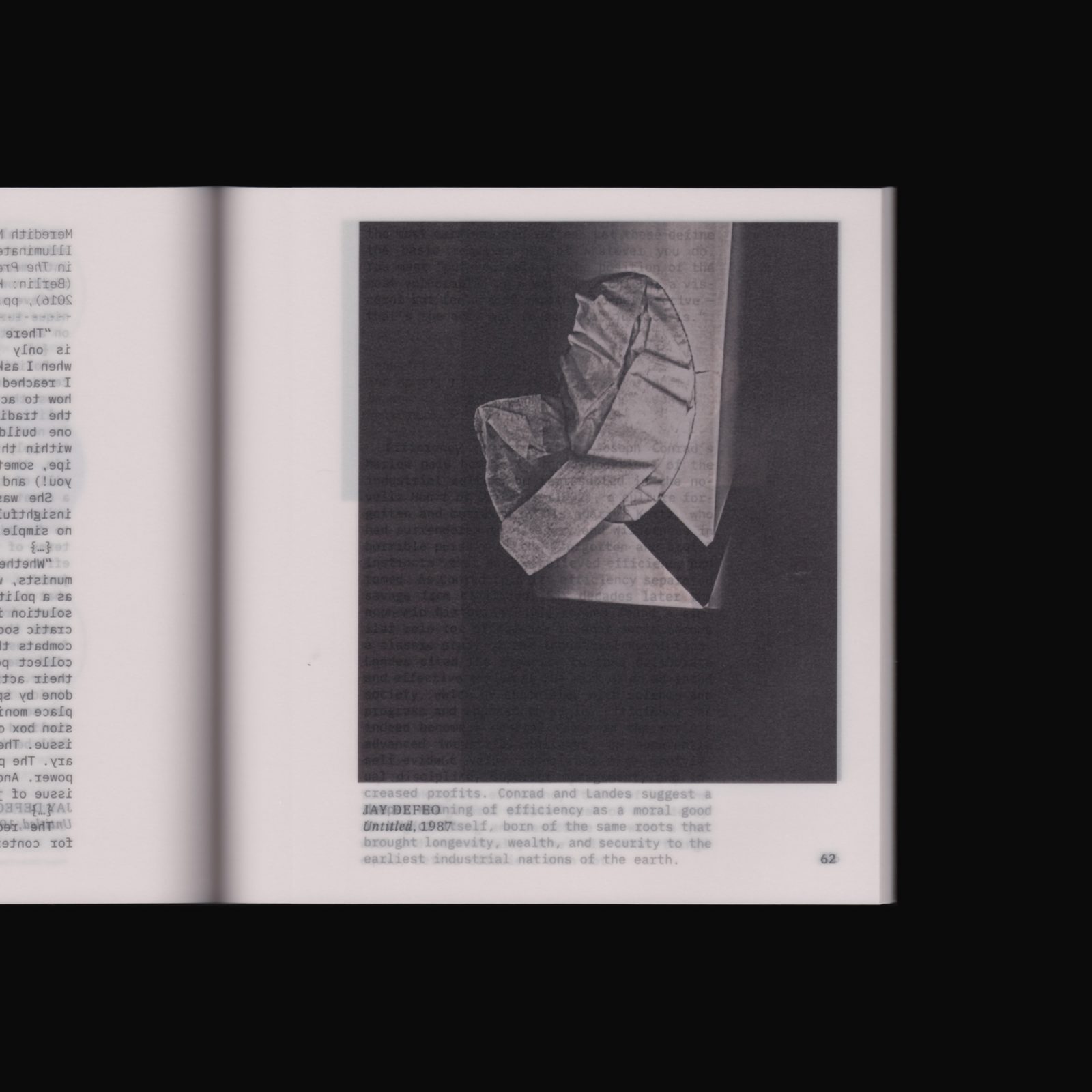
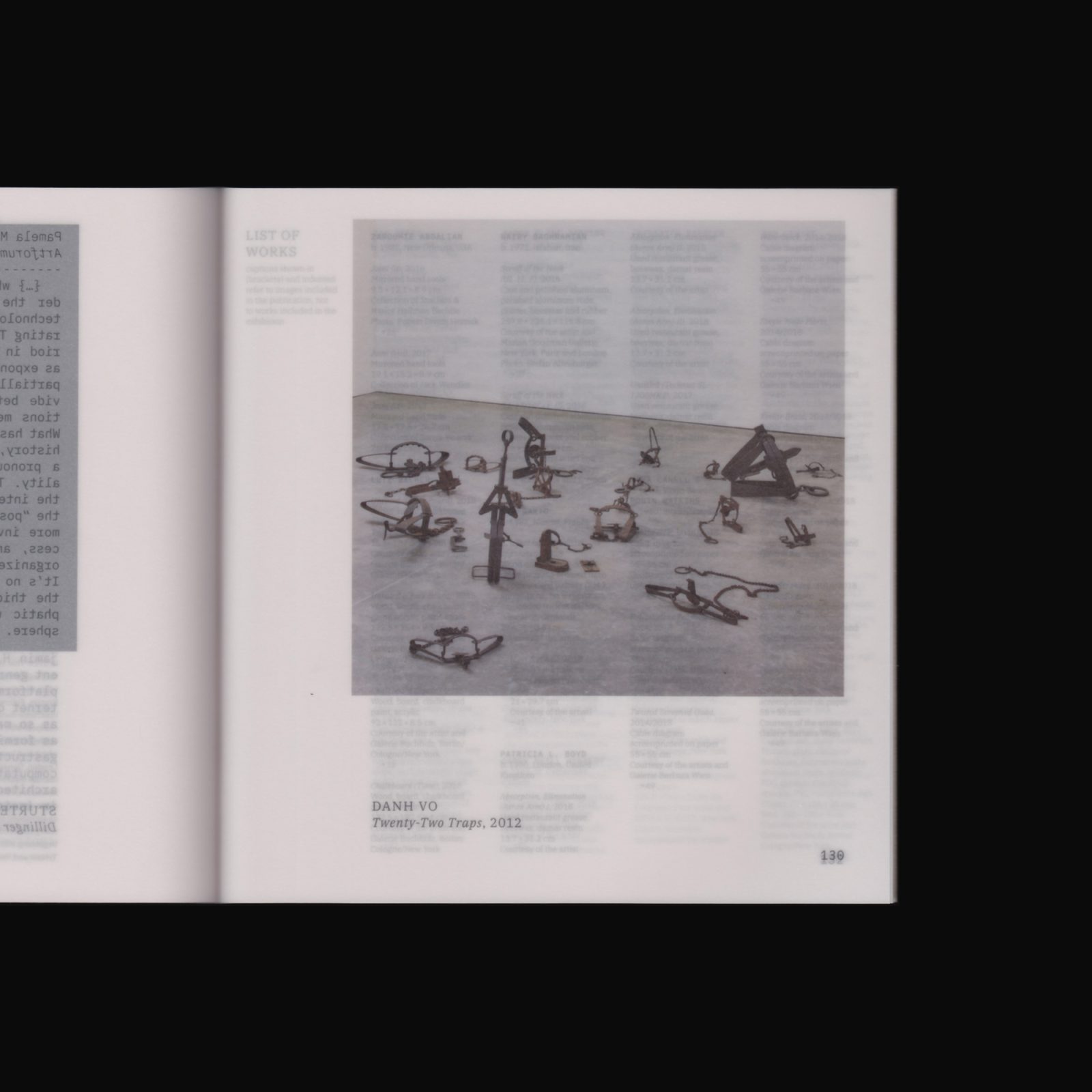
In his catalogue essay, curator Anthony Huberman explains that the works in this exhibition ‘reflect on what it could mean to contest the regime of the machine’. That is, they question the worship of usefulness in modern scientific civilisation, which is refused or even ridiculed by each piece on show. It’s a strong concept, and potentially extends to how the works are placed in the labyrinthine space of the Secession. If the point is to produce friction, then the disorganisation of Other Mechanisms—the inability of its parts to add up to a coherent whole—is a paradoxical form of success.
Concept: Anthony Huberman. Texts: Jennifer Alexander, Franco Berardi, Benjamin H. Bratton, Gilles Châtelet, Gilles Deleuze, Keller Easterling, Vilém Flusser, Sigfried Gideon, Martin Heidegger, Anthony Huberman, K.G. Hultén, Maurizio Lazzarato, Pamela Lee, Les Levine, Jean-François Lyotard, Robert King Merton, Meredith Meredith, Lewis Mumford, Gerald Raunig, Nishant Shah, Robert Snowden, Joseph Vogl. Images: Zarouhie Abdalian, Lutz Bacher, Nairy Baghramian, Eva Barto, Patricia L. Boyd, Nina Canell & Robin Watkins, Jay DeFeo, Trisha Donnelly, Harun Farocki, Howard Fried, Jacob Kassay, Garry Neill Kennedy, Frederick Kiesler, Pope.L, Louise Lawler, Sam Lewitt, Park McArthur, Jean-Luc Moulène, Cameron Rowland, Sturtevant, Danh Vo.